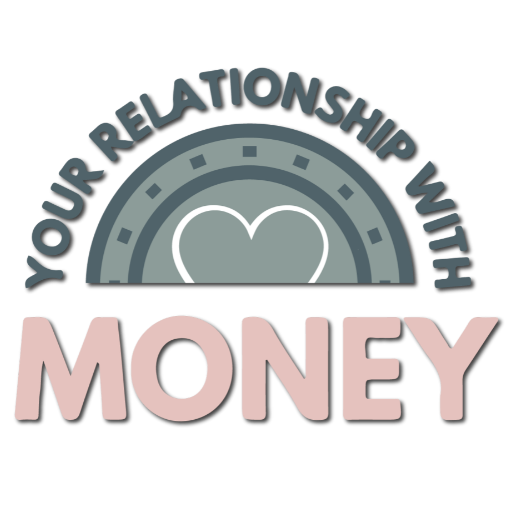What is Overspending?
Overspending is when you spend more money than you have. It’s never okay to overspend, and doing so will end up costing you more in the long run.
Overspending is not something that only happens to the rich and famous, it happens to everyday people too. Overspending can be caused by a few different things like impulse purchases or spending on things you don’t need, but sometimes it’s hard to get out of the overspending cycle. When this happens, it can be hard to get back on track with your finances because of all the interest accrued on your credit card balances or other debts.
To avoid overspending in the future, there are some tried-and-true principles that can help:
Create a Spending Plan: Keep track and set clear Financial Boundaries for yourself and the people you live with.
Keeping track of your budget is important for your finances. There are many different methods to manage and pay down debt, but the most important thing is that you stay in control and know what is going on with your money.
The Cycle of Overspending and How it Impacts Your Financial Success
The cycle of overspending and how it impacts your financial success is a vicious cycle. The more you spend, the less savings you have and the harder it is to save money.
This cycle can be created in many ways: by not planning ahead and shopping impulsively; by using credit cards; by using payday loans; or by taking out high interest loans. All these methods lead to reckless spending which can spiral out of control quickly if not monitored carefully.
Subconscious beliefs that may lead to overspending
My self-worth equals my net worth.
We are all worthy, but if you feel that you are not worthy you will chase money, status and possible positions to feel more worthy. We are all worthy of love, success, and whatever else we want in life. However, if you feel that you are not worthy then you will chase money, status and possible positions to feel more worthy. It is important to understand that no matter how much money you make or how many great achievements you have, these things will eventually lose their luster.
Sometimes people measure their own worthiness according to how much money they have in their bank account.
Things would get better if I had more money.
Money is an inescapable part of the human experience. Without it, we cannot afford food or shelter or anything else that makes life worth living. And while having more of it would certainly be nice, the fundamental truth is that money can’t buy happiness. But knowing this doesn’t make it any easier to ignore the feeling that you’re not doing well enough financially.
The impact of trauma and emotional regulation on spending patterns
Trauma has a lasting impact on the emotional regulation of an individual. The emotional regulation can be impacted in various ways such as sudden mood swings, chronic anxiety and stress. There is a relationship between trauma and spending patterns, which is largely due to the uncontrolled emotions that result from trauma.
The impact of the flight, fight or freeze response on financial behaviors
The flight, fight or freeze response is a natural reaction to feeling threatened. This response causes an increase in heart rate, forcing blood to move away from the digestive system and towards the large muscles in the arms and legs. When people feel threatened by an economic situation, they are more likely to take flight or freeze rather than fight for their financial needs.
It is not always an either/or proposition, but the tendency to take flight or freeze is very strong.
Indications of Overspending
You have trouble sticking to a budget
You need to know your monthly income and break it down into weekly expenses. This will help you see where your money is going and what you can budget for.
Your spouse of partner complains about my spending or debt.
Financial arguments are the most common type of arguments that couples have. In order to prevent these arguments from spiraling out of control, it’s important to figure out what is really going on.
I hide my spending or my debt from my spouse, business partner of financial advisors
It is time to come clean and start living an honest life.
I make promises to myself and others about limiting my spending and to work according to a budget, but then can’t keep the promises.
I purchase things with money I don’t have
One of the most common forms of debt is credit card debt. It can be easy to get into credit card debt because you are able to purchase items with money that isn’t in your bank account. When people have money available in their bank account, it is often for a small amount of time before they have to pay bills or buy groceries.
Saving is not a priority
I do not automatically save money for myself. I spend too much and often buy stuff impulsively.
Overspending and the reward system in the brain, dopamine
We all have an internal reward system which is active when we are rewarded with something. This includes money, food, or even finally getting to take a break after working on a difficult task. The problem is that the more we are rewarding ourselves, the less rewarding it is for us until eventually it can lead to addiction.
How to Beat Overspending & Live a Life of Financial Success!
We work hard and we earn money. But we can’t spend it all, right? We want to save some of it because we know that’s the best way to start building wealth.
The following are some of the best tips for saving money that you can use in your life.
1. Tracking your money on a monthly basis with a budget.
Budgeting is a great way to track your money and can be done fairly easily. You can use a worksheet or spreadsheet to keep track of your monthly income and expenses for the month. The goal is to reduce debt, save money and plan for future expenses.
- Start to track your Net Worth over time, and ensure to build this on an annual basis
Track your Net Worth over time and ensure to build this on an annual basis. It’s important to not only know how much money you make in a given year, but also how much money you spend. You can choose to calculate your net worth by subtracting your debt from the value of your assets. To be successful with this, it is important that you ensure that the assets are listed at their true value. - Manage your finances through proper risk planning and risk assessments
As you plan your financial future, it is important to create a plan that reflects your needs. This plan should be based on the risks that may affect you and your family. Everyone has different life circumstances and risk tolerance levels, so there is no one-size-fits-all solution for this topic. - Life is all about balance. You have to balance your savings and your spending to achieve financial success.
Too often, people focus on only one aspect of their finances. For example, it’s easy to be spending more than you make and put all your money into savings. But this is not the best strategy for long-term success. The key is to find a balance between saving and spending that works for you.
Conclusion
Don’t let yourself go crazy on spending. Saving money is not always easy, but it can be done by making changes to your lifestyle.
Most of the time you end up overspending because you made impulse purchases or because you were too lazy to plan ahead for your spending. You don’t want to end up in that situation, so make sure that you follow a dedicated budget to stop overspending.
There are many reasons that you should track your Net Worth on an annual basis. First, it gives you an idea of how much money you have to work with. It also helps keep your finances in perspective. Finally, it ensures that if something changes for the worse in the future, you’ll know what’s happening instantly.

